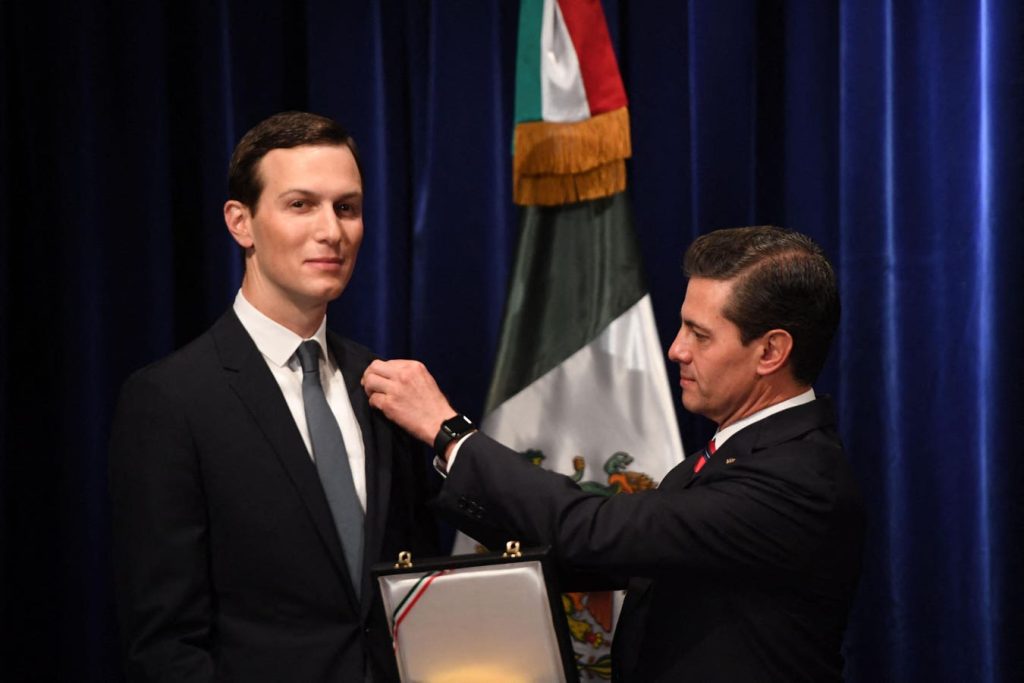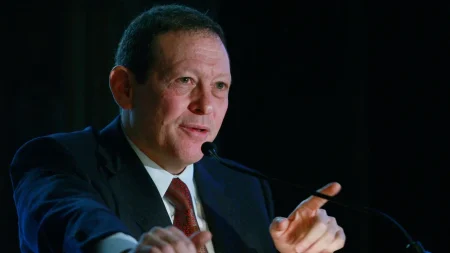Jared Kushner’s Affinity Partners Faces Uncertain Future in Mexico Amidst Tariff Tensions
Jared Kushner, former senior advisor to President Donald Trump, has found his private equity firm, Affinity Partners, navigating a complex landscape in Mexico. A planned investment in a prominent Mexican infrastructure company, meticulously cultivated over 18 months, hangs in the balance following Trump’s recent decision to impose tariffs on Mexican goods. This move has injected uncertainty into the trade relationship between the two countries, forcing Affinity to pause its investment plans until the dust settles. While Kushner has publicly expressed support for his father-in-law’s policies, the situation raises unavoidable questions about potential conflicts of interest and the intertwining of personal business dealings with presidential decisions.
Kushner’s investment strategy in Mexico was predicated on the growing trend of nearshoring, where companies relocate their production closer to their target markets. He viewed Mexico as a prime beneficiary of this shift, particularly given the desire amongst U.S. businesses to reduce reliance on Asian manufacturing. The burgeoning economic ties between the two nations, reinforced by this nearshoring trend, seemed to offer a fertile ground for investment. However, Trump’s tariff threats have thrown this carefully constructed calculus into disarray, threatening to disrupt the very economic dynamics that underpinned Affinity’s investment thesis.
The imposition of tariffs has wide-ranging implications for the Mexican economy, potentially hindering investment and competitiveness. Although analysts suggest that Mexico might retain its nearshoring advantage if tariffs remain below those imposed on countries like China, the uncertainty surrounding the trade dispute creates a challenging environment for businesses. Specifically, the infrastructure sector, Affinity’s target area, could be significantly impacted. Tariffs on imported building materials, combined with potential retaliatory tariffs from Mexico, could escalate construction costs for major infrastructure projects, making them less attractive to investors. Even high-profile projects like Tesla’s planned factory in Monterrey have been affected by the uncertainty surrounding U.S.-Mexico trade relations.
The current trade tensions represent a significant hurdle for Affinity’s Mexican ambitions. Kushner’s prior involvement in negotiating the USMCA trade agreement during the first Trump administration, which also involved tariff threats, had forged close ties with Mexican officials. This experience, coupled with his relationship with Luis Videgaray, a former Mexican government official who now leads Affinity’s AI investments, seemed to pave the way for a smooth entry into the Mexican market. However, the re-emergence of tariff threats undercuts this groundwork, creating a volatile and unpredictable environment for investment.
Affinity Partners, founded by Kushner in 2021 shortly after leaving the White House, has quickly amassed a significant portfolio, with investments spanning at least eight countries. The firm’s initial capitalization of $3.1 billion, primarily from Middle Eastern investors, has been augmented by a further $1.5 billion, elevating its total assets to $4.6 billion. This substantial financial backing has enabled Affinity to pursue diverse investments, from a fast-food franchise in Brazil to a fitness tech startup in Germany. Ironically, both these nations have also been subject to tariff threats by Trump, highlighting the global reach of these trade disputes and their potential impact on Affinity’s investments.
The Mexican investment, initially perceived as a strategic move to capitalize on nearshoring, is now emblematic of the challenges posed by unpredictable trade policies. The situation underscores the intricate interplay between political decisions and private business interests, particularly when those interests involve family members of the decision-maker. While Kushner has voiced support for Trump’s overall objectives, the uncertainty surrounding the tariffs forces Affinity to recalibrate its plans and await a clearer picture of the evolving trade landscape between the U.S. and Mexico. The stalled investment serves as a stark reminder of the ripple effects of trade disputes, impacting not only national economies but also the strategic calculations of global investors.










